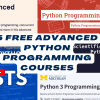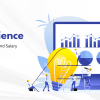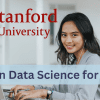Latest Posts |
|---|
|
From Our Partners |
|---|
More Recent Posts
- Ultimate Collection of 50 Free Courses for Mastering Data Science
- Vector Databases in AI and LLM Use Cases
- 7 Steps to Mastering MLOPs
- Get University Level Certified for Next to Nothing
- Build a Command-Line App with Python in 7 Easy Steps
- Utilizing Pandas AI for Data Analysis
- AI Con USA: Navigate the Future of AI 2024
- Dot com to Dot AI: The New Tech Bubble?









